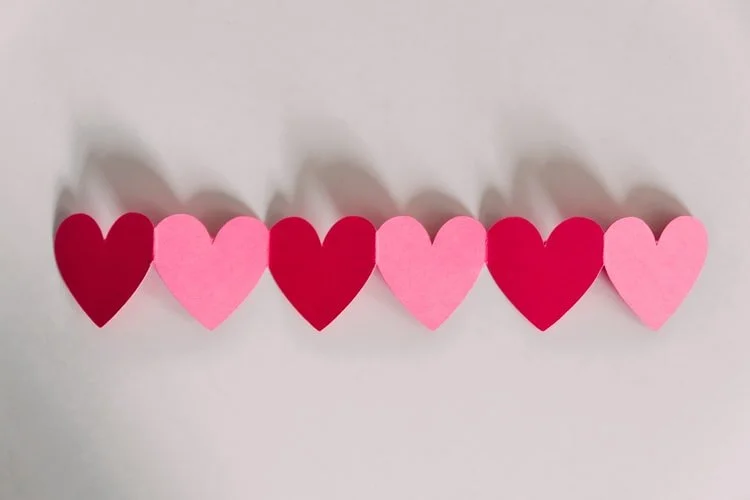Beaujolais: Campsie discusses her new single, toxic relationships, and genre
by Amelia Whyman
Campsie's new single, Beaujolais, was released last month, dripping in dramatic reverb and red wine metaphors. I sat down with Campsie to discuss the new record and the inspiration behind the song's creation.
Beaujolais is an honest telling of an emotionally abusive relationship. It's raw, heartfelt, and full of a sense of revisiting past pain, healing from it, and drawing from its memory. "I had written this song a while after the breakup" Campsie explains, "and I guess I was processing after a really long time, and maybe I still am a bit."
The journey of releasing the song has taken time and care, as Campsie slowly came to terms with her experience and the effect it had on her. Emotionally abusive relationships can take their toll on any person, so the idea of reopening past scars in the creative process was at times daunting.
When I ask how the title Beaujolais came about, Campsie tells me the idea came from an image she saw on Tumblr while struggling to write the chorus. "I had a whole other different idea, and I didn't like it, but I came across this image of a woman having red wine poured all over her face, and it felt so evocative." The image of a woman being subjected to a soaking of red wine resonated with Campsie; she recognised the feeling of losing control.
“I've never connected with an image like that before. I thought, that's what it's got to be: Beaujolais.”
Campsie's producer, Sam, was an invaluable support to her during recording. "Sam really understood the sensitivity of the song, and the whole studio process was emotional," she says. At the end of the song, stacked vocals repeat the words "I know, I know" in breathy crescendo to a break of pure vocal sound. Campsie explains the vulnerability in recording this: "I was stood in this black room without shoes on, five metres away from the microphone, absolutely using my whole gut. I felt exposed."
She was confronted with similar vulnerability in the photo shoots accompanying the release. Shot by photographer Joshua Onabowu, the photo series depicts three different looks, each representing parts of being in a toxic relationship. During shooting, Campsie had wine poured all over her, living through the image she had connected so much with. Although a vulnerable moment for the singer, she describes it as cathartic.
“I felt this release, I was just letting go of the relationship bit by bit.”
The song's lyrics "goodnight to confidence", and "you said I had abilities to make a room of people leave," burn through the lo-fi sounds and contorted piano. It's heartbreaking to hear the tale of someone being controlled by another. Fortunately, Campsie navigated her way out of the relationship.
The singer has been working as a soloist since she turned 20. Now, at age 23, she has a collection of songs she's ready to share and is in the process of getting her live show together. Her experience of the abusive relationship never stopped her from writing, which is something she has done since she started playing the piano aged 5. Her debut, I'm Gone, an indie-pop, guitar filled exploration of anxiety, was released to a fantastic reception.
When asked what led her to release a song that sounds so different to I'm Gone, Campsie tells me that deciding upon her 'sound' is something she has always struggled with. She’s grateful that the idea that an artist has to stick to one specific genre, and cannot sway from that, is becoming a thing of the past.
“I'm thankful that I have been growing as an artist and a musician and a songwriter where the genre thing is not necessary.”
Campsie finds the idea of rigidity in genre and style boring; "I write one thing and then I want to write something completely different.” It's no surprise that Campsie's musical inspiration is so varied, since her favourite artists include Carole King, Joni Mitchell, and Billy Joel - but also Radiohead and Lorde. This eclecticism shines through in her song making and shapes her view that genre is fluid. According to her, if you focus too much on genre "you can end up giving yourself identity crisis headache".
At the moment, Campise is obsessed with Mura Masa's new album: "It makes me want to get an electric kit out and start sampling and using weird effects on my voice.” She cannot wait to get stuck into something new.
What's clear with Campsie is that she wants us to learn something from her music, and to find comfort in it. Her first single was an honest tell-all about living as a teenager with anxiety, set to an infectious drum beat. Her second single explores the difficult theme of toxic relationships and the impact that can have on your sense of self, accompanied by dramatic synths and reverb. Her strong, female voice shines through her music and is part of what makes her such a likeable musician.
“It's me revisiting past trauma and looking at it a different way. I'm hoping it's there for somebody else to lean into.”
By leaning into her past, and reflecting upon it, Campsie creates music that is candid and forthright, just like herself. She uses her honesty to reflect on herself and try and relate to others. As a result, the music is ever-engaging, and I can't wait to see what she brings out next.
Listen to Beaujolais on Spotify.
Title image by Joshua Onabowu. Check out Joshua’s photos for Beaujolais.
Amelia Whyman writes for Into the Fold, Eventbrite and The Gryphon. You can find her on Twitter as @awxyman.





